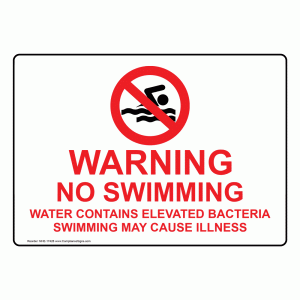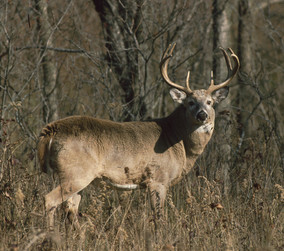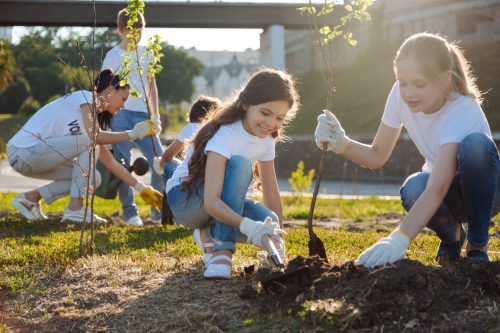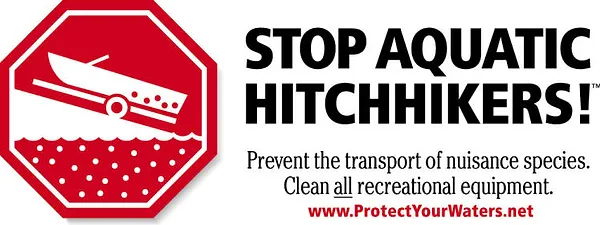Adams County Fair wraps-up this week in Corning
July 7th, 2024 by Ric Hanson
(Corning, Iowa) – The Adams County Fair continues now through Tuesday, in Corning. The Fair began Saturday. See the full schedule of events (HERE) below:

(Corning, Iowa) – The Adams County Fair continues now through Tuesday, in Corning. The Fair began Saturday. See the full schedule of events (HERE) below:

(Harlan, Iowa) – The Shelby County Fair takes place now through July 15th, in Harlan. You can find a full schedule of events HERE. Some of the highlights this week, include:
The events conclude July 15th with the Livestock Auction on the Shelby County Fairgrounds.
(Des Moines, Iowa) – Officials with the Iowa Department of Natural Resources, in their latest Beach Monitor, say swimming is not recommended at multiple sites in Iowa. In western Iowa, swimming is not recommended at the following lakes:

No sampling was done in the Okoboji area lakes due to flooding.
(Atlantic, Iowa) – Here’s a reminder about an upcoming meeting in Atlantic, Monday, with regards to a thinning deer population in the region. Iowa DNR State Deer Biologist Jace Elliott says the presentation takes place from 6:30- until 8-p.m., Monday, July 8th, at the Venue in downtown Atlantic.
Other meetings are being held next week, in Denison, Council Bluffs, and Shenandoah. Elliott says the deer population degradation is not specific to any one county. It’s occurring throughout western Iowa.
He says discussions will be held in eight locations altogether. The week of July 15th, meetings will be held in Onawa Sioux Center, Sioux City, and Cherokee. Jace Elliott says the discussions will be tailored to the region.
He says you don’t need to bring any materials with you to the meetings. You ARE encouraged to bring your fellow hunters along with you, or at least let them know about the sessions, because input from hunters is needed to determine how the DNR should proceed with helping the deer herd to recover.
The results of questionnaires available at each meeting will be published once all the meetings are completed. He says they have a lot of data to put what’s happened, in context.
 Elliott says they’ve made “some pretty drastic changes over the last three-years in southwest and west central Iowa, in terms of reducing county anterless tags and other regulations,” in an attempt to turn around the downward deer population trend. He says the DNR is confident they can revitalize the deer population in a few short years.
Elliott says they’ve made “some pretty drastic changes over the last three-years in southwest and west central Iowa, in terms of reducing county anterless tags and other regulations,” in an attempt to turn around the downward deer population trend. He says the DNR is confident they can revitalize the deer population in a few short years.
Elliott said deer harvest practices that have taken place from the mid-2000’s on, is the main factor which has resulted in the current reduced deer population, but there are other factors as well. “Deer hunting, he says, “is one of Iowa’s most recreationally and economically important traditions. Our goal is to manage deer numbers at a level that is acceptable to our citizens and that supports a quality hunting experience.”
See the schedule below for information on other meeting dates, times and locations. All meetings run from 6:30-until 8-p.m.
(Radio Iowa) – A growing number of Iowa students are participating in target shooting contests. Marty Eby is the shooting sports coordinator for the Iowa Department of Natural Resources, which oversees the “Scholastic Clay Target Program” in Iowa. He says the trapshooting championships held in early June are example of that growth. “When we first started this thing back in the mid-2000s, we had a couple of hundred kids. It was a two-day event,” Eby says, “and now 15 years later we’ve morphed into our American Trap, a seven day event with over 3100 participants.”
About 42-hundred Iowa students were involved in the program last year. Youth shooting sports have grown more popular over the the past decade. Nearly all states are participating in the Scholastic Clay Target Program. “Through last year, Iowa was the largest SCTP state in the number of participants in the United States,” Eby says. Thirty-six Iowa school districts sent teams to the state Skeet Championships in Waukee last month. The statewide shooting competitions for Iowa community college students will be held in October. Eby says the program’s first priority is teaching the kids how to safely handle a gun. 
“Before every practice, before every meet, anytime the kids are going to go onto what we call the field, the ultimate importance is safety,” Eby says. “We ingrain our coaches to hammer that home to the kids so that there are no incidents when we’re on the field.” Students who mishandle their gun are disqualified from competition. All tobacco products and alcohol are banned at events — for students, coaches and spectators. Gun critics raise concerns about the growing popularity of youth shooting sports and argue marksmanship training should be the responsibility of parents, not schools.
DES MOINES – The popular Trees for Kids grant program is accepting applications through August 26.
Grantees can be awarded up to $2,500 to purchase trees and mulch. All trees for this program must be planted on public community grounds (park, community center, public school, etc.) Youth are required to be engaged in the process, most often helping to plant the trees on site.
“Planting trees is a fun way to connect kids to nature, build on their sense of wonder and explore the benefits trees provide at their school and in their community,” said Chip Murrow, urban forestry program specialist for the Iowa Department of Natural Resources. 
Studies show trees planted around schools and in neighborhoods give youth increased levels of concentration, lower levels of aggression, lower levels of obesity and fewer symptoms of ADHD.
To apply for the grant, visit: www.iowadnr.gov/UrbanForestry.
(Radio Iowa) – Governor Kim Reynolds believes the burgeoning market for hemp-infused candies, drinks and other products is taking advantage of the 2018 Farm Bill’s hemp provision. “I had issues with this bill from the beginning. It was never designed to do that, it was the intent of the hemp bill. It was actually another commodity for our farmers. That was actually the intent,” Reynolds says. New regulations on these products begin in July that only allow people who are 21 and older to buy the hemp infused items. And the state will restrict the potency of these products to four milligrams of T-H-C per serving or ten milligrams per container.
Reynolds visited Alcohol & Drug Dependency Services of Southeast Iowa in Keokuk, and says the state regulations address the issues that the Farm Bill didn’t. “It didn’t deal with minors and their access to T-H-C. This mixing T-H-C with alcohol. That’s a dangerous combination. I’m at a recovery center and we want to make sure people are informed,” she says.

Hemp infused products (IPR photo)
Two Iowa companies which make the hemp infused products are suing the state over the new regulations. The lawsuit says the regulations would criminalize 80 percent of their current inventories. Neither company sells products that mix T-H-C and alcohol.
(Radio Iowa) – The longer Independence Day holiday had boaters looking to spend more time on the water, but heavy rains and flooding could interrupt those plans. Iowa D-N-R Boating Law Administrator, Susan Stocker, says continued rain has caused water levels and conditions to change daily. “Make sure wherever you’re going you check to make sure the ramps are open because with the high water there certainly should can be some ramps that are closing,” she says. The flooding has washed all kinds of debris into the water and it may be tough to tell what is lurking below. “You may only see a small what appears to be a small log but that is now a potentially 30 foot tree that is under the surface,” she says.
Stocker says a lifejacket is always important, and even more so in high water conditions where you could be thrown from the boat. “Wearing the lifejacket is very, very important because in an emergency situation you won’t be able to find it and or you’re thrown in one direction and the lifejacket is thrown and or the water current is taking it downstream,” Stocker says. She expects the waterways that are accessible to see a lot of traffic.”We do anticipate good crowds we may see that there is a shift in where people are traveling because some of the areas are flooded but it’s also going to depend on the weather, Stocker says.
Stocker says officers will be looking for drunken boaters, so if you are going to drink, don’t get behind the wheel of a boat.
CEDAR RAPIDS, Iowa (KCRG) – For 4th time in the United States, the CDC has identified a case of highly pathogenic avian influenza (HPAI) in a human being. Officials say that as with previous cases, the person is a worker on a dairy farm where cows tested positive for the virus.
The person reportedly only showed symptoms of the virus in their eyes, and after receiving treatment, has recovered.
Based on the information available, the CDC says the infection does change the health risk assessment for the U.S. general public in relation to HPAI. However, officials do say that the development underscores the importance of taking precautions when exposed to infected animals.
The CDC recommends:
More information on the virus and health recommendations can be found here.
(Des Moines, Iowa) – The Iowa Department of Natural Resources (DNR) reminds all boaters and anglers to check for unwanted hitchhikers on their boats and equipment this Fourth of July to help protect Iowa lakes and streams. Aquatic invasive species move from one water body to another by hitchhiking on boats, in bait buckets and on other equipment used in the water. They can create serious problems for Iowa waters and negatively impact the quality of outdoor recreation experiences. Kim Bogenschutz, aquatic invasive species coordinator for the Iowa DNR, says “Aquatic invasive species can reduce native species and make lakes and rivers unusable for boaters, anglers and swimmers.”
These invasive species often grow quickly and spread fast when brought to another lake or stream due to a lack of natural predators or competitors. Boaters and anglers can help prevent the spread of aquatic invasive species to new water bodies by cleaning, draining and drying their boats and equipment after each time on the water.

It is illegal to possess or transport aquatic invasive species or to transport any aquatic plants on water-related equipment in Iowa. Signs posted at public accesses identify infested waters and remind boaters to stop aquatic hitchhikers. Iowa law also requires boaters to drain all water from boats and equipment before they leave a water access and to keep drain plugs removed or opened during transport. It is also illegal to introduce any live fish or plants, except for hooked bait, into public waters.
Learn more about aquatic invasive species, including a list of infested waters in the current Iowa Fishing Regulations or at www.iowadnr.gov/ais.